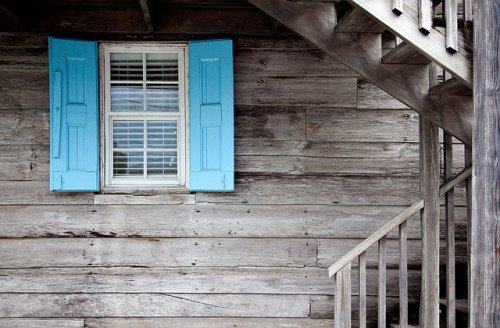Location, location, location is the name of the game in real estate, and when it comes to property near to a cemetery or graveyard, the situation is usually regarded as grim for those who are trying to sell their home. In Malaysia – and many other Asian countries – houses located near to cemeteries are usually a cause for concern, regardless of whether you are buying or selling.
Nevertheless, just like any other real estate dilemma, there are always pros and cons to a situation, and properties near to graveyards or cemeteries are no different. In this edition of Estate123’s “This vs That”, we’ll take a look at the disadvantages and benefits of owning a house near to where people are laid to rest. In the spirit (geddit?) of ‘good things come to those who wait’, we’ll start off with the disadvantages.
(Words making you dizzy? Now you can check out our Infographic on the Pros & Cons of Property Near Cemeteries instead!) 😉
Cons / Disadvantages
Lower resale and rental value
This is the first thing that comes to mind when you mention “house near to cemetery”, and for good reason. Not everyone wants to live near dead souls, no matter how safe, well-maintained or quiet the cemetery may be. For many, the thought of headstones in the backyard is something that is held in similar disdain as living next to a funeral home, religious institution or even a school, so naturally, these types of properties will have lower resale value. Renters will also think twice, which will also lower the house’s rental yield.
Expect it to sit longer on the market
Along with lower resale value and rental yield, houses with a cemetery nearby are usually expected to stay longer on the market. This is because the refusal or reluctance to live in such a property significantly decreases the number of people who would be interested in buying it, not to mention the fact that it is considered taboo or bad luck by many cultures and communities. Therefore, there is a very niche market for houses near to graveyards, cemeteries or funeral houses.
Bad feng shui
Asians are especially concerned when it comes to feng shui for properties, and any place related to grim situations such as death are generally acknowledged to have bad or negative feng shui. Naturally, many people would not even consider a property once it is known that there are dead people buried nearby, regardless of how ‘good’ or desirable its location.

Would you appreciate a ‘grave view’ like this outside your window every day?
Contamination or pollution from cemetery
Most people think there won’t be any pollution coming from a nearby cemetery (having less people around means less chance of noise, light or environmental pollution) but potential buyers have to be aware of the fact that the toxic chemicals used during the burial process may cause environmental contamination and groundwater pollution over a period of time.
Gives people an uneasy feeling
Granted, this one is more psychological than physical, but you cannot deny that being in close proximity to the spooky atmosphere of a cemetery gives many people the creeps. Perhaps having a constant reminder of frail human mortality can be a bit too morbid, especially for young people or families with small children.
Nevertheless, if there are disadvantages, there will also be advantages of living in such a property as well.
Pros / Benefits
 Quiet and peaceful
Quiet and peaceful
“Cemeteries make very quiet neighbors,” said a Redfin agent, and that is probably why some buyers actually like the idea of a living near to a grave site. For those who aren’t bothered by the proximity of a cemetery, a house located in such an area is a boon, as there are usually less neighbours and therefore less rowdy activities.
Cheaper (more for less)
On the other side of the coin, a lower resale value means that if you’re buying, it will be at a cheaper price compared to properties within the same area… without a cemetery a stone’s throw away, that is. Homes built near to cemeteries are also usually larger due to more space available in the surrounding area and lower demand.
No to little chance of development nearby
Cemeteries are almost always left alone, meaning that there won’t be any developments nearby or on the site itself. It would have to take many, many years of conditioning before the local residents and community can accept a burial site to be anything else.
On the other hand, did you know that many of New York’s famous landmarks used to be cemeteries? These include famous places like Madison Square Park, Bryant Park and the current site of the Waldorf Astoria Hotel.
Homes near cemeteries sell for more (?!)
Apparently, this is true. In an article by US-based residential real estate company Redfin in 2013, it was found that houses near cemeteries are not severely impacted by the proximity of dead people, and may actually sell for more.

Other (Neutral) Factors
Of course, other factors should also be put into consideration when buying or selling a house near a cemetery. For example, a couple with young children may not want to have a house near to a grave site, but an elderly couple with no children or grown-up children might not mind the extra space (for family gatherings) or peace and quiet that comes with having a cemetery next door. Besides that, there are also some who love the history and connection to community that cemeteries bring, and are completely not bothered with the supernatural aspects of such places. Culture also plays an important role when it comes to such properties; some cultures celebrate life and death equally, while others regard topics of death and the afterlife taboo.
At the end of the day, it all boils down to whether the buyer has seriously considered the pros and cons of purchasing a house near to a cemetery, and how the various factors will affect their daily life and future plans. Would you consider buying a house near a cemetery, graveyard or even a funeral home?

Sources
National Post
Redfin
Realtor.com
Self Growth




![[Infographic] New Homeowners: Paint or Wallpaper?](https://insight.estate123.com/wp-content/uploads/2018/07/paint-wallpaper-header-e1532932767720-440x250.png)
